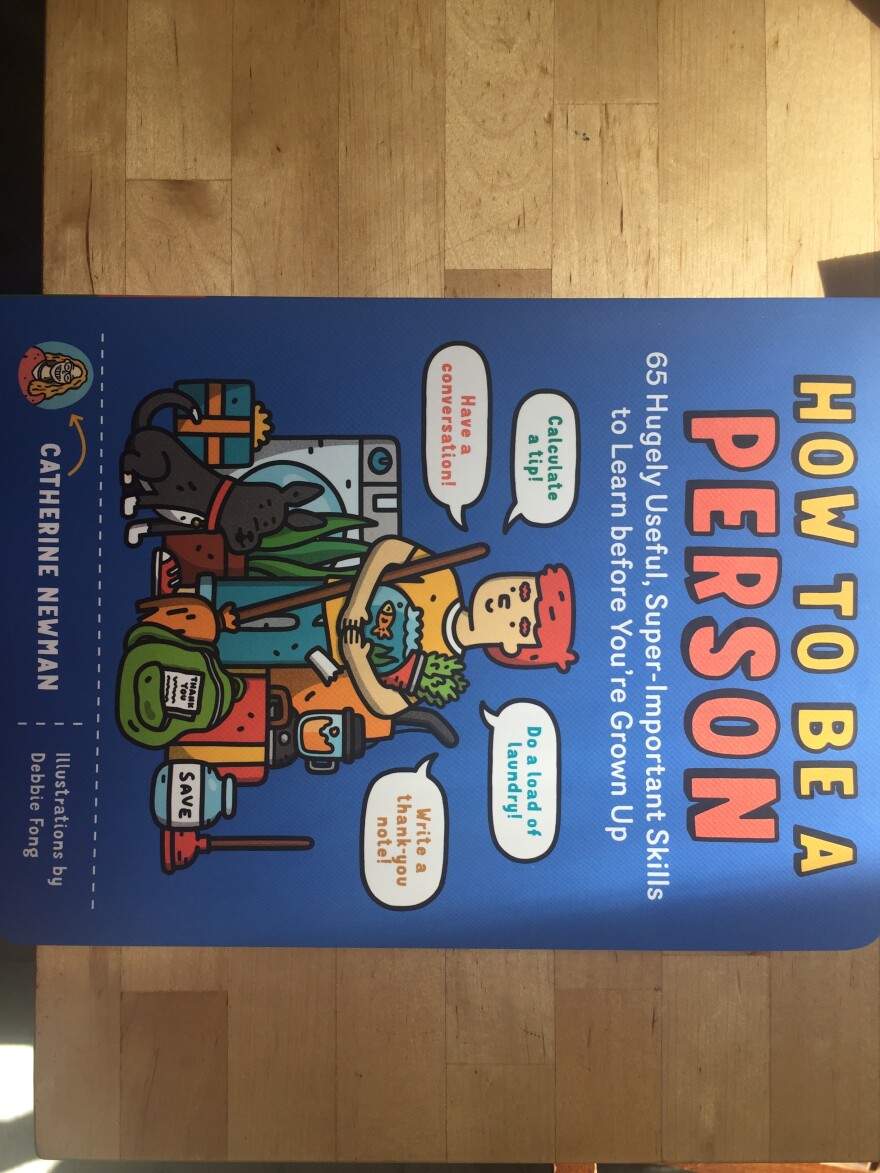"How to Be A Person" takes readers through dozens of basic skills they should learn before they’re grown up – from doing the laundry and tying knots, to writing thank-you notes and managing money.
It's a humorous, quasi-self-help book for tweens and young teens, written by Catherine Newman of Amherst, Massachusetts — and it's part of our Books for Young People series.
Newman said many people assume children will learn everything they need to know simply by being around their parents, but the recent pandemic lockdown period has shown that isn’t always true.
Catherine Newman, author: It has lifted the veil off of actually what makes a household run — and I think in a really important way. I think, weirdly, some of this stuff happens behind the scenes, and kids don't even know what's going on, so they can't learn.
"I just feel like some of the stuff the kids can't learn, because we're not even showing it to them. They don't even know it happens."
Catherine Newman
I am really aware of people now talking to their kids about how much of their money they give away charitably, which I think is [so] important — like, tell your kids you're doing it. Don't wait till they go to bed and do it secretly. I just feel like there's so many things.
And stain removal. You're not out where everyone is congregating, like spritzing a stain and scrubbing it. That’s just happening whenever you do laundry. And so I just feel like some of the stuff the kids can't learn, because we're not even showing it to them. They don't even know it happens.
Karen Brown, NEPM: Your book is very accepting. You admit, "Look, you're going to forget this, or you're going to make a mess." So it doesn't feel "judgey" at all. And I'm just curious, did you have to work on that tone? Did you go through a few drafts of getting the right tone or is that just how you communicate?

I'm really not a perfectionist, which I think made me a good person to write this book. If the bar is really low in your household, that's great. If nobody really cares if some part of the house is clean, don't clean it. The big piece that I really care about is - how do you live well in community. How do you take care of the other people you live with, your neighbors, your town, extending out.
My sense is, even in addition to the mechanics of each of these individual skills, there's an underlying message: that you don't have to be scared of independence. You've got this. And I'm wondering if there's a converse message for parents who maybe are worried about their kids being independent — or not necessarily worried, but learning how to think about their kids not needing them so much for every little thing.
For me, it was interesting just to get a sense of : what should I teach my kids to do for themselves? At what point? What should they already know? What should I still be doing for them? So what do you hope parents get out of reading this?
It is a lot about independence. Like there's that picture in the back [of the book] of a dad basically pushing his daughter out of a helicopter into a parachute. And I love that.
And then for me, secretly, I actually always think it's a book about interdependence, about relationships. So even though what you are doing is building these skills that you need to have as a person separate from your parents, for example, but skills you need to have to live well with people in every situation — to work well with people, or to be a good partner to somebody, or a good friend or a reliable housemate.

While you wrote this book as a collection of skills, it really feels like you had — I don't want to call it an agenda necessarily — but you had sort of a broader purpose. So it is not just learning how to do stuff. There's a little bit of a political bent or a social justice bent to it.
Yeah, somebody in a radio interview sort of joked that I turned out to be more progressive than they thought, because they'd asked me why I hadn't delineated more which skills were for boys and which skills are for girls. Which made me feel like they didn’t spend a lot of time with the book, because it is really not a book with skills for boys and skills for girls!
And so I think of it as having a feminist agenda, honestly. Like if you have an expectation that your girls know how to wrap a gift or, I don't know, clean a bathroom and you catch yourself not thinking the boys should do it, I hope that's just like a bell of mindfulness. Because we know we want our kids not to grow up to be these people just lumbering through the house, kind of unaware of what's happening.
Check out more of NEPM’s Books For Young People series here.










